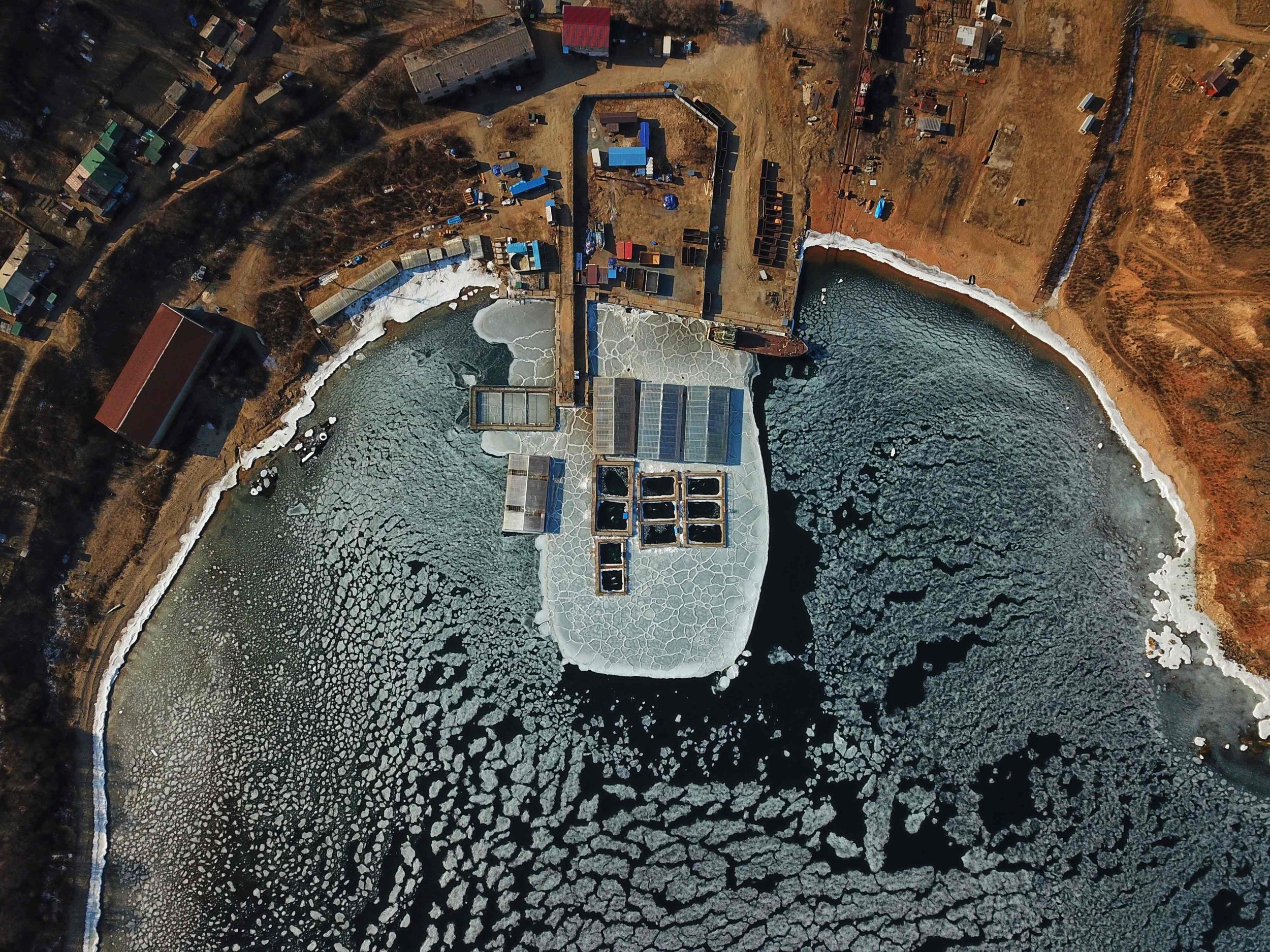Russia to release whales trapped in ‘jail’ after international outcry
Belugas and orcas bound for Chinese theme parks could have fetched over £78m, Putin says
Nearly 100 whales held in a “whale jail” in Russia’s far east are being set free following an international outcry.
Vladimir Putin intervened and the 11 killer whales and 87 belugas in cramped enclosures on the Sea of Japan are now being taken back to their natural habitats.
Eight of them have now been moved from their pens, where they were forced to spend almost eight months, to water reservoirs installed in trucks.
They will spend six days travelling more than 1,100 miles to reach the Shantar Islands in the Sea of Okhotsk, the area where they were caught last year.
The operation was first broadcast during the Russian president's annual call-in show on state television on Thursday.
This route was not the only option considered by Russian authorities. The initial decision was to release them where they were held in captivity, further south along Russia’s Pacific coast.
But an international group of scientists and marine mammal specialists pleaded with the government to choose the more costly option of releasing them in their natural habitat.
The whales were initially captured by four private companies linked to one man. The companies used loopholes in Russian law to obtain permits to catch animals and then sell them to China, where they would spend their lives performing in theme parks.
The companies moved their catch to Srednyaya Bay near the Russian city of Vladivostok, where they were spotted by local environmental activists and journalists who sounded the alarm.
Mr Putin directed government officials to determine the fate of the mammals. They then took custody of the whales and sought the advice of marine expert Jean-Michel Cousteau and executive director of the Whale Sanctuary Project, Charles Vinick.
The prices the captive animals would have brought could have surpassed $100m (£78m), Mr Putin said during his call-in programme. The companies that held the whales were reluctant to release them, even after he got involved.

“That’s why there are many interested parties and the problem could not get solved easily,” he said. “Wherever big money is involved, it gets difficult to solve things. Thank God a solution was found.”
The whales are going to be released in groups from June until October, the state's Russian Research Institute of Fisheries and Oceanography said in a statement.
They will be monitored by 70 specialists, including veterinary doctors and scientists. Each whale will be accompanied by two people and will be equipped with a GPS tracker before release.
The institute also said that it would be the first time so many captive whales had been returned to the wild, anywhere in the world.

The companies that took the animals will have to pay hefty fines and might face criminal charges. A Russian court ruled that their permits to catch the whales were illegal, and activists say that aside from the validity of the permits, the companies violated legal restrictions on capturing the creatures.
During Mr Putin’s call-in show, officials also reported to him that the government decided to ban catching whales for cultural reasons – the legal pretext that businesses had used for years to capture and then sell the animals.
© The New York Times
Join our commenting forum
Join thought-provoking conversations, follow other Independent readers and see their replies
Comments
Bookmark popover
Removed from bookmarks